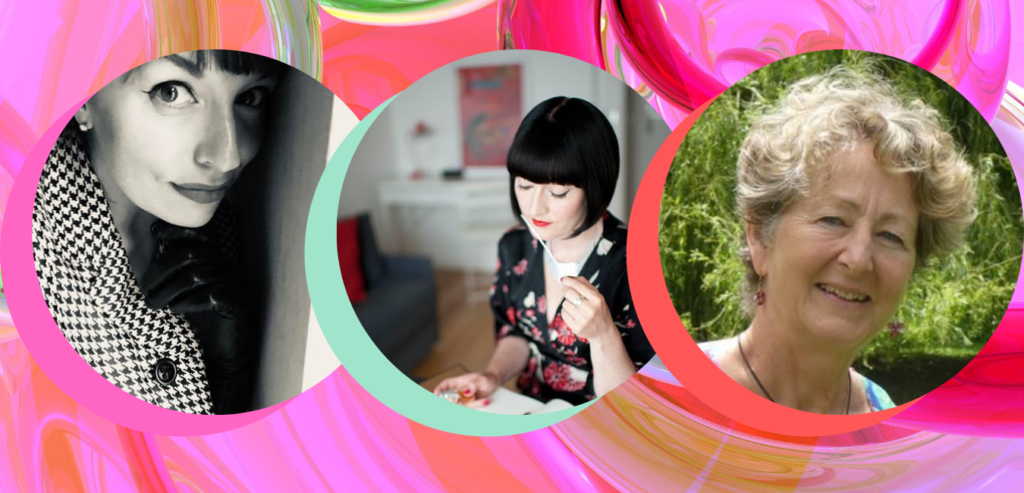In part 1 of our psychology of scents series, we revealed that fragrances hold far more significance in our lives we may initially realise. They are inevitably a fundamental aspect of human existence; we have an enormous implicit, as well as explicit, reliance on our sensory experiences in our everyday lives. With this in mind, in part 2 of our series, we asked three fragrance-industry experts: Anne Churchill, a sensory researcher at Givaudan, Suzy Nightingale, senior writer for The Perfume Society and Karen Gilbert, founder of and perfumery teacher at Karen Gilbert 5 questions to help you nail your next fragrance purchase

1. Why are scents so important?
SUZY: We know that we used to rely on our sense of smell for survival, that even though we may no longer use that sense to detect predators, still when we use a fragrance, it directly plugs into our limbic system – that part of our brain linked to instincts and emotions. Using a fragrance is much more than merely smelling clean or fresh – soap does a good job of that. They can immediately remind us of people we’ve loved and lost, of places we’ve travelled, make us feel more powerful or relaxed: and all in an instant! Your reaction to a perfume bypasses logic – you don’t intellectualise your response, it can feel like being punched in the solar plexus.
At the perfume society, we regularly get emails and calls from people desperately trying to track down their beloved grandmother’s favourite fragrance or wanting to find a new perfume to boost their confidence or help them feel less stressed.
During our (pre-COVID-19) How to Improve Your Sense of Smell workshops, we asked people to blind-smell scents and give us their immediate emotional reactions. Some people would smile joyously and laugh as they suddenly recalled a happy memory. Others burst into tears as they felt unsettled but couldn’t think why, or a scent reminded them of a loved one. A scent is an invisible accessory that can say something quite different than your physical appearance. Fragrances are the link between Art and Science, for me. The closest thing we can get to actual alchemy or time travel.
The current pandemic will create a trend for fresh, clean natural fragrances and scents that enhance our sense of safety and wellbeing.
2. What are the main motivators in fragrance selections?
ANNE: People often pick a scent that reminds them of a positive memory, a relative, any association that brings them back to a joyous time. A lot of the way we feel about scents is through learning and we see this even in infants. If a mother has a preference for a certain scent when pregnant, the baby will respond positively to that scent once born!
It’s worth noting these positive associations are extremely personal and can differ in different cultures depending on the environments you’ve been exposed to. Your brain gets used to smells around you which is why you may no longer smell your favourite perfume, fabric softener or clothes.
SUZY: We’re noticing an increasing number of people exploring ‘niche’ (smaller, independent and artisanal) houses. People want to smell unique, so we are seeing lots of bespoke blends, and even bigger brands offering personalised services and personality-led quizzes to ‘match’ people to their perfect scent.
Our own Fragrance Finder computer algorithm at the Perfume Society uses key emotion-based words along with the fragrant ingredients listed, to help guide people to discovering six new fragrances based on a current favourite. Because finding a new fragrance isn’t just about how you want to smell, it’s about how you want to *feel*. Gendered fragrances are a marketing construct – men and women both happily wore violet and rose and musk and orange blossom for centuries. And now we’ve seen the majority of niche houses move away from ‘men’s’ or ‘women’s’ classifications, even going beyond the ‘unisex’ term and preferring ‘gender-less’ or ‘gender-free’. Guerlain called their Lui fragrance ‘gender fluid’ while Gucci described their Mémoure d’Une Odeur as ‘gender-neutral.’

3. What factors cause changes in perfume buying habits?
KAREN: My clients are usually looking to create their own fragrances, and this is often related to an occasion. Many people buy a 1-day perfume class as a gift and some have created occasion-specific scents. Wedding scents are really popular as people want something memorable for their special day.
ANNE: People choose different fragrances to mark different occasions but they also tend to choose fragrances to suit their environment and mood. For example, people are drawn to citrus fragrances when they want to feel invigorated and happy. Perfumes can be crafted to place people in various moods.
In economic downturns we often see a rise of nostalgic and comforting scents, things that remind us of happier, more carefree times or help us feel cosy
4. Does the fragrance industry follow trends?
SUZY: Trends do influence the fragrance industry, just as fashion trends filter through to everything in culture, eventually. One year we might see brightly coloured or blinged-out bottles, the next they may be plain and paired-back. In economic downturns we often see a rise of nostalgic and comforting scents, things that remind us of happier, more carefree times or help us feel cosy – with bottles harking back to ‘retro’ styles, or incorporating touchy-feely elements such as soft, stroke-able textures on the bottles or box packaging.
Last year we saw a rise in so-called ‘solar’ scents – fragrances using orange blossom, neroli and petit grain to evoke sunshine captured in a bottle. I think it’s because of the uncertain political climate – people were looking for an instant shot of happiness in a scent! I think happiness and comfort will be trends for some time to come, the way things are going.
KAREN: If you look back at 20th-century history you can see a direct influence of global trends on the fragrance industry. The big brash scents of the ’80s were followed by more transparent marine scents in the ’90s and the ’00s was the era of the celebrity scent. In recent times we have seen more natural, sustainable and gender-neutral scents that reflect our times. I imagine that the current pandemic will create a trend for fresh, clean natural fragrances and scents that enhance our sense of safety and wellbeing.
5. What advice would give someone choosing a new fragrance?
ANNE: Be aware of your “personal skin smell”, your skin biology affects fragrances so the same perfume will smell differently on different people due to their skin type, pH level etc. Make sure you test your favourite scents on your skin and no one else’s.
KAREN: Make sure you do research on your favourite fragrances beforehand. Use blogs like Fragrantica, Bois de Jasmin and Perfume Shrine to guide you but take reviews with a pinch of salt as fragrance selection is a very personal thing.
SUZY: Try things without looking at the list of ingredients – really give them time to develop on your skin. You need to live with a scent for several hours to truly experience it as the differing molecules evaporate at different rates. We’ve seen sales of our Discovery Boxes rise by an astonishing percentage because people are looking to treat themselves and try new scents they might never have thought about or heard of before.
I always encourage people to start with a fragrance they know they love and look up the name of the perfumer – these ‘noses’ often have a signature style just as any other artist or maker does – and try some of their other creations. But most of all: be brave! The joy of a scent is they can be washed off if you genuinely dislike them – but oh there’s a world of wonders to discover out there. Life is too short to simply smell ‘nice’. I want everyone to find those scents that make you gasp, that make your eyes roll back in your head with pleasure, that make you crave to wear them and feel instantly better when you do. They’re just waiting for you to find them…



